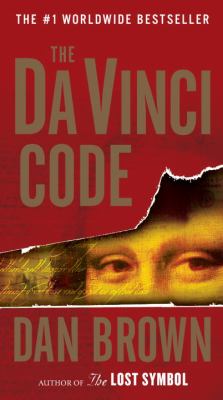Remember "The Da Vinci Code?"

Remember Dan Brown’s The Da Vinci Code, the second volume of a trilogy that features Harvard professor Robert Langdon as the hero? Remember all the fuss the novel kicked up from religious protests to accusations of historical inaccuracy to getting dissed by the likes of Salmon Rushdie and Stephen Fry to Dan Brown being slapped with plagiarism lawsuits? Remember how it was once one of the hottest books of the first decade of the 21st Century? Remember how quickly the book headed to Hollywood and became a major motion picture? And to think it now is just another novel sitting on bookshelves, its moment as the latest literary sensation come and gone in the blink of an eye.
Some of the accusations that were leveled against Brown’s novel are easily dismissed. The book is not anti-religious as many have charged because Jesus Christ is afforded great respect; even the theory advanced that he was Mary Magdalene’s husband and father of a child he never saw does not diminish Jesus’ greatness in any way. And (spoiler alert) the Catholic Church is not the big bad guy in the plot, but is only one element being played against the middle by the real big bad guy.
One criticism that could be leveled, however, is in the novel’s style of pacing. While Brown’s first Robert Landon adventure (Angels & Demons ) had a fast pace, here Brown jumps about between Langdon on his adventure and Langdon teaching a class, the latter of which is where much exposition takes place. Why couldn't Brown have kept it to Langdon telling his partner Sophie all about things like Jesus, the origin of religion, etc., just like it was done in Ron Howard’s movie version? Brown writes well, but the novel’s plot slowed each time we went from adventuring with Langdon to class with Langdon and return. Apart from that, Brown told a page-turning good story.
So what did you think about The Da Vinci Code?
Article image courtesy Hennepin County Library.
2 comments